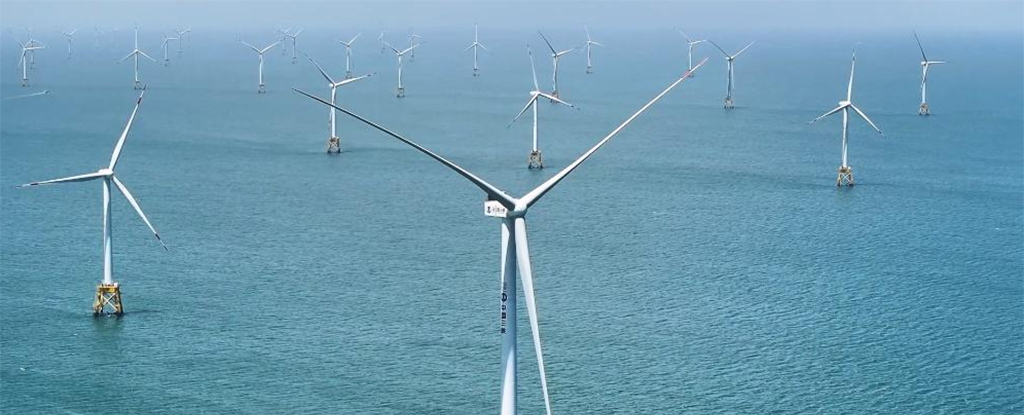Top 10 World's Largest Machinery Marvels
Discover the top 10 marvels in the world's largest machinery category, showcasing human ingenuity and engineering prowess.

The world is full of engineering marvels, from skyscrapers that seem to touch the sky to machines that move mountains. Among these, the world's largest machinery stands out, showcasing the pinnacle of human ingenuity and engineering prowess. These colossal machines are not just larger-than-life; they are instrumental in various sectors, including space exploration, energy production, and global trade. In this article, we dive into the top 10 world's largest machinery, each a testament to what humans can achieve with vision and determination.
Exploring the Giants: World's Largest Machinery
From particle accelerators that unlock the mysteries of the universe to gigantic ships that carry the world’s goods across oceans, the range of machinery on this list is as diverse as it is impressive. These machines do not just exemplify size but highlight the advancements in technology and engineering over the years. As we explore these titans, we gain insight into the monumental efforts behind their creation and the roles they play in advancing our society.
List of Top Choices
- Large Hadron Collider (LHC)
- Container Ship
- Mining Excavator
- Offshore Oil Rig
- Aircraft Carrier
- Rocket Launch Vehicle
- Hydroelectric Dam
- Wind Turbine
- Solar Farm
- Radio Telescope
Large Hadron Collider (LHC)

- Location: CERN, Switzerland
- Purpose: Studies fundamental particles
- Size: 27-kilometer circumference
The Large Hadron Collider (LHC), nestled beneath the Swiss-French border, is the world's largest and most powerful particle accelerator. An engineering marvel, the LHC is designed to push the boundaries of human knowledge about the universe. Scientists use it to collide protons at high energies to study the basic building blocks of matter, exploring the very foundations of the universe. The insights gained here have profound implications, from understanding the Big Bang to potential advances in technology and medicine. Its sheer size and complexity make it a cornerstone in the realm of scientific research, demonstrating the heights of what collaborative engineering and intellectual curiosity can achieve.
Container Ship
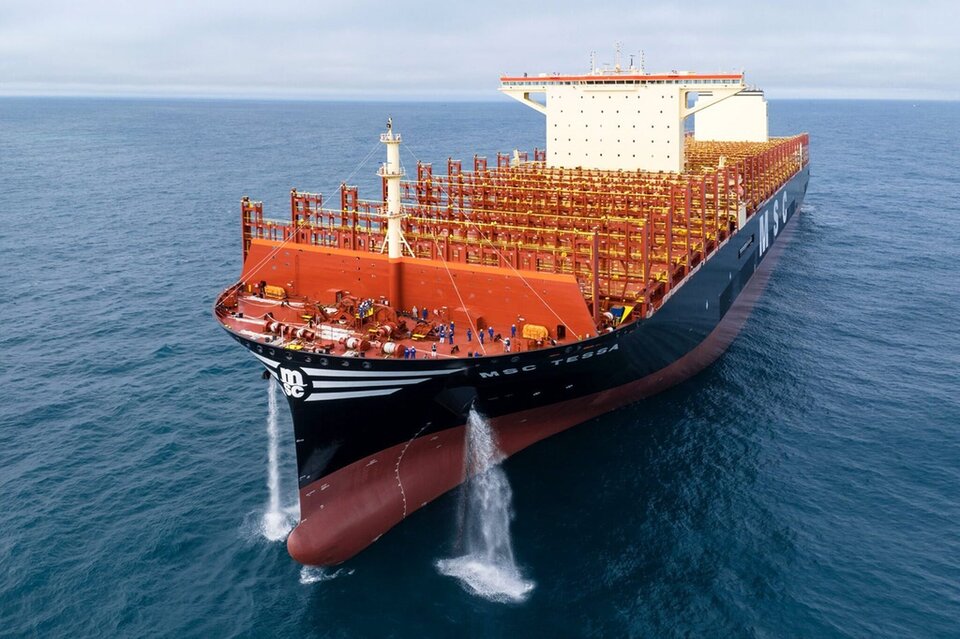
- Key Feature: Can carry over 24,000 TEU
- Importance: Backbone of global trade
- Example: HMM Algeciras class ships
Container ships are the giants of the sea, playing a pivotal role in the global economy. The HMM Algeciras class, among the largest in the world, can carry over 24,000 twenty-foot equivalent units (TEUs), making it a linchpin in international trade. These ships are engineered to maximize efficiency and minimize environmental impact, reflecting advances in naval architecture and global trade's evolving demands. They not only demonstrate human engineering's capacity to overcome logistical challenges but also symbolize the interconnectedness of the modern world, enabling a flow of goods like never before.
Mining Excavator

- Example: Bagger 293
- Weight: Over 14,000 tons
- Function: Extracts minerals from the Earth
The mining excavator, represented by behemoths like the Bagger 293, is among the heaviest machines ever built. Towering above the landscape, this colossal machine is used to extract minerals from the earth, playing a crucial role in the mining industry. The Bagger 293, specifically, is not just notable for its massive size but also for its contribution to extracting resources essential for modern life. With its gigantic wheel and array of buckets, it epitomizes the scale and power of industrial machinery, illustrating the extremes humans go to harness the earth's resources.
Offshore Oil Rig

- Type: Floating platform
- Function: Drills for oil in deep water
- Weight: Hundreds of thousands of tons
Offshore oil rigs, marvels of engineering and technology, traverse the challenging environment of the deep sea to extract oil. These floating platforms, some weighing hundreds of thousands of tons, embody the complex interplay between human ingenuity and the forces of nature. They are equipped with sophisticated technology to drill miles beneath the ocean floor, tapping into the planet's oil reserves. Moreover, their presence in some of the most inhospitable parts of the ocean highlights the lengths to which humanity will go to fuel its insatiable demand for energy, pushing the limits of what is technically and physically possible.
Aircraft Carrier

- Function: Carries and launches aircraft
- Example: USS Gerald R. Ford class
- Feature: Can carry dozens of aircraft
Aircraft carriers, such as the USS Gerald R. Ford class, represent the pinnacle of naval engineering and military capability. These floating airbases can carry dozens of fighter jets, helicopters, and other aircraft, projecting air power anywhere in the world. Their ability to support a wide range of military operations makes them a crucial asset in modern warfare. The USS Gerald R. Ford class, with its advanced technology and greater efficiency, stands out for its ability to enhance the United States Navy's operational capabilities. This class of aircraft carrier underscores the strategic importance of naval power and highlights the technological advancements that have transformed naval warfare.
Rocket Launch Vehicle
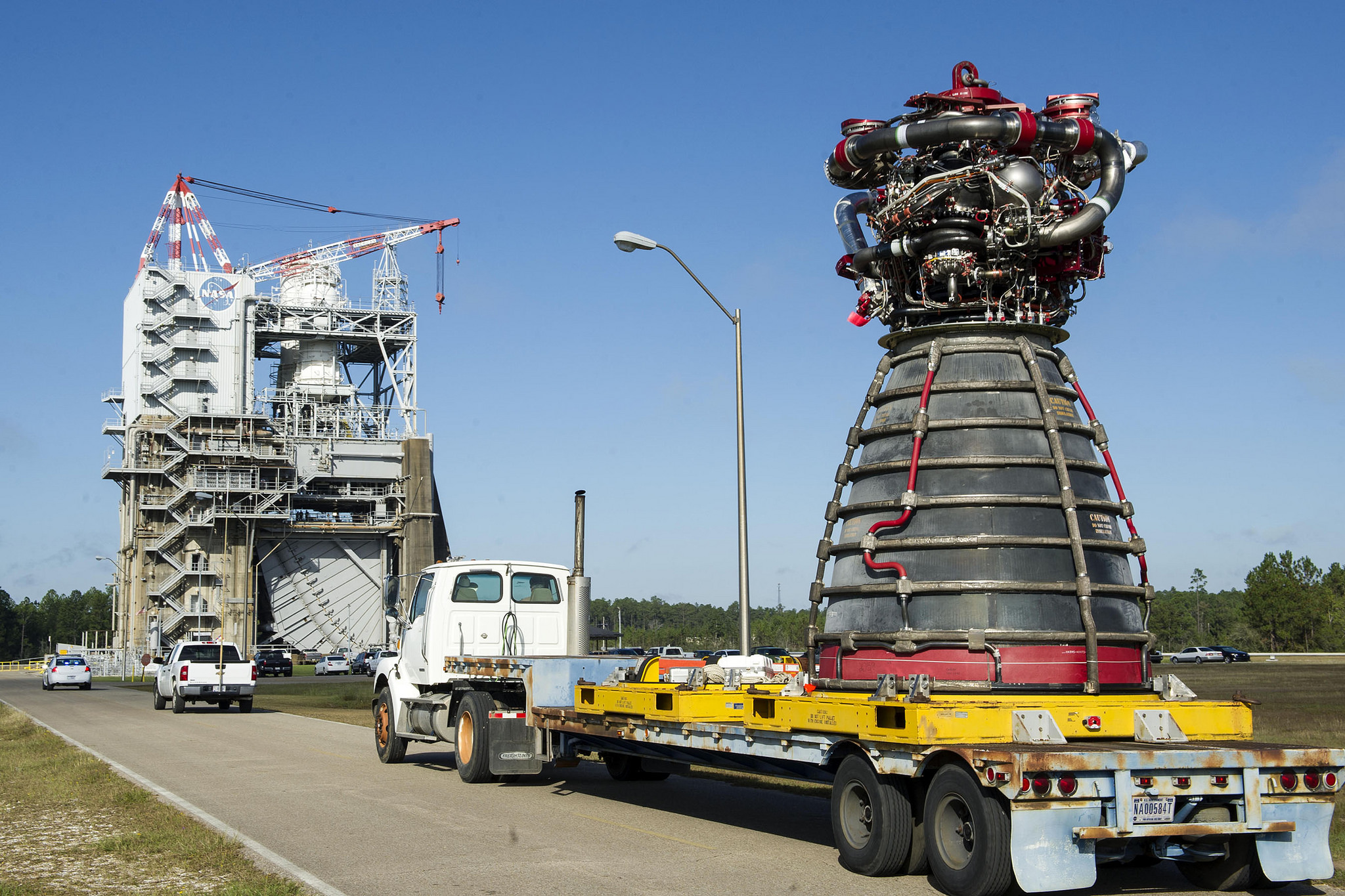
- Example: Saturn V
- Function: Launches spacecraft into space
- Capability: Among the most powerful machines ever built
The rocket launch vehicle, exemplified by the legendary Saturn V, played a pivotal role in human space exploration. As the powerhouse behind the Apollo missions, including the historic moon landing, the Saturn V remains one of the most powerful machines ever built by humankind. Its creation represented a monumental achievement in engineering, requiring innovations in materials science, propulsion, and aerodynamics. The Saturn V's legacy continues to inspire new generations of rockets, driving the ambition to explore beyond our planet. Its story is a testament to the human spirit's drive to explore, understand, and ultimately transcend our earthly limitations.
Hydroelectric Dam

- Example: Three Gorges Dam, China
- Function: Power generation, flood control, and water supply
- Capacity: Largest electricity-producing facility in the world
The Three Gorges Dam in China represents an unparalleled feat of engineering, being the world's largest power station in terms of capacity. Beyond its primary function of generating electricity, it serves crucial roles in flood control and providing water supply, illustrating the multifaceted benefits of such megastructures. This hydroelectric dam highlights the capabilities and potential of renewable energy sources to meet humanity's growing energy demands sustainably. Moreover, the project showcases the challenges and complexities involved in balancing technological advancement with environmental and social considerations, encapsulating the essence of modern engineering marvels.
Wind Turbine
- Feature: Blades over 200 feet long
- Function: Generates electricity from wind
- Example: GE's Haliade-X
Wind turbines, such as GE's Haliade-X, with blades stretching over 200 feet, mark the cutting edge of renewable energy technology. These towering structures harness the power of the wind to generate electricity, contributing to the global shift towards cleaner, more sustainable energy sources. The Haliade-X is notable not only for its sheer size but for its efficiency and capacity to power thousands of homes with a single turn of its massive blades. Wind turbines symbolize the harmonious blend of technology and nature, offering a clean alternative to fossil fuels and underscoring the significance of innovation in the fight against climate change.
Solar Farm
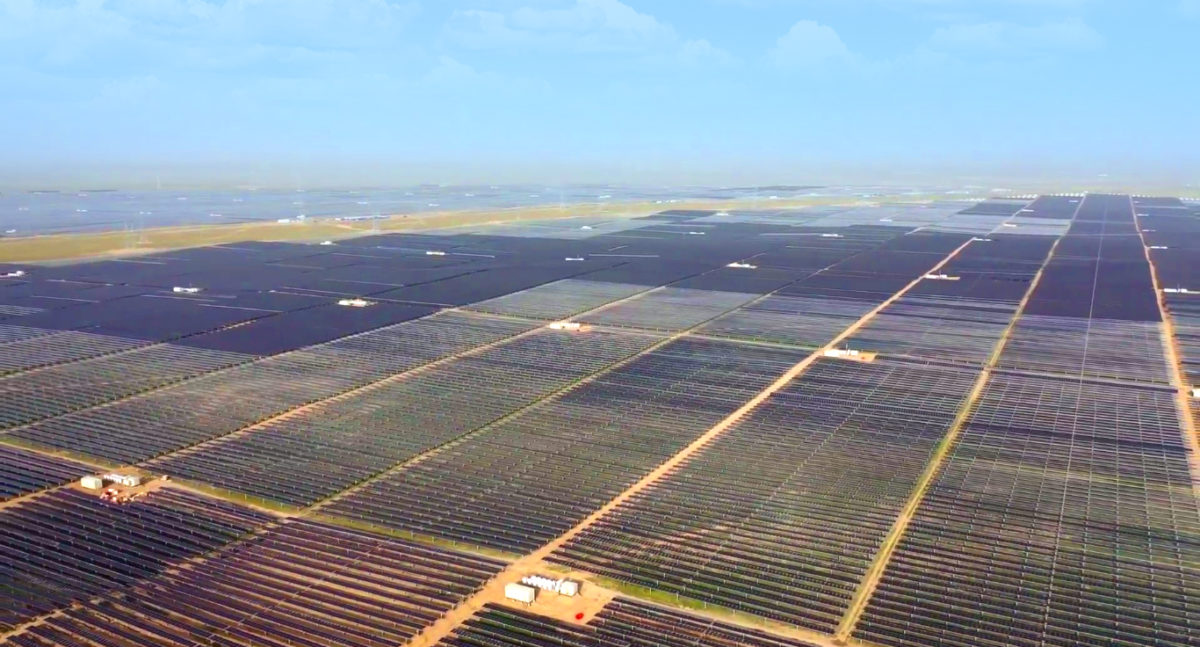
- Capacity: Can cover hundreds of acres
- Purpose: Converts sunlight into electricity
- Example: Bhadla Solar Park, India
The sprawling Bhadla Solar Park in India, covering the extensive tracts of land with its photovoltaic panels, exemplifies the global stride towards harnessing the sun's inexhaustible energy. Solar farms play a pivotal role in the clean energy revolution, providing a scalable solution to reduce dependence on fossil fuels. The Bhadla Solar Park, one of the largest of its kind, is a beacon of progress in solar energy utilization. It underscores the viability of solar power as a major energy source while highlighting innovations in photovoltaic technology that make such grand-scale energy production possible. As solar technology continues to advance, solar farms will likely become even more crucial in meeting the world's energy needs sustainably.
Radio Telescope
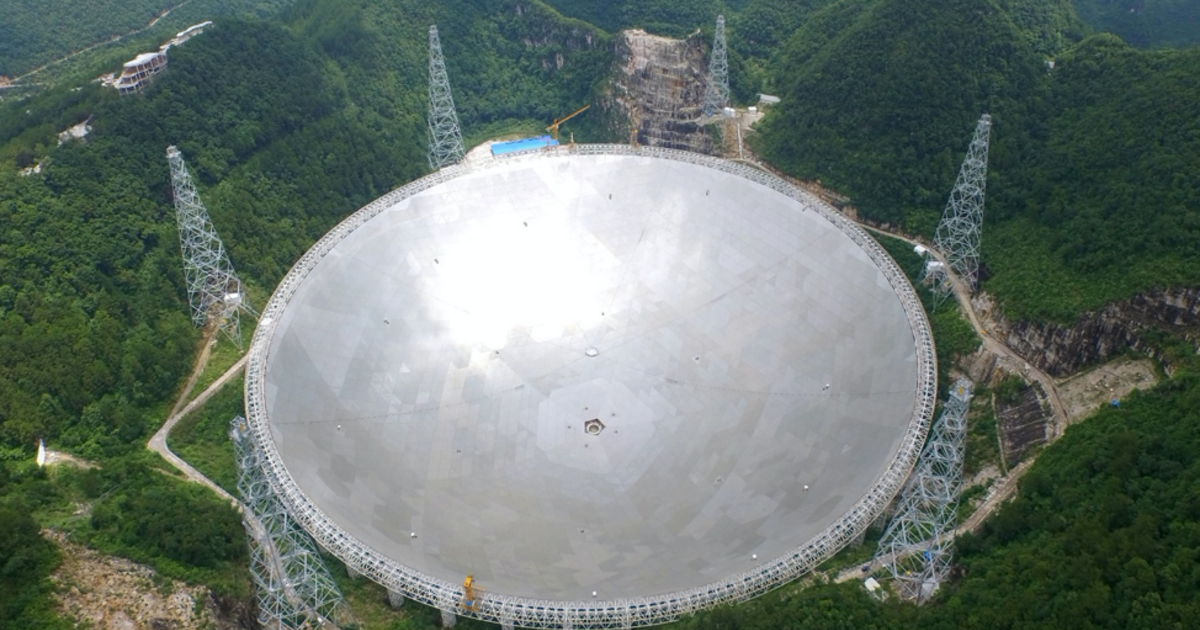
- Example: Arecibo Observatory
- Function: Studies radio waves from space
- Size: Can be hundreds of feet wide
The Arecibo Observatory, prior to its collapse in 2020, stood as one of the largest and most powerful radio telescopes in the world. By studying radio waves emanating from far corners of the universe, it helped astronomers unlock mysteries about our cosmos, from mapping planets to detecting distant galaxies. Despite its loss, the legacy of Arecibo lives on, highlighting the critical role of radio telescopes in our ongoing quest to understand the universe. These massive instruments, gathering data over vast expanses of space and time, are indispensable tools in the field of astronomy. They represent the intersection of curiosity and technological prowess, driving scientific discovery beyond the boundaries of our planet.
The machines highlighted in this article — from the Large Hadron Collider to the titanic radio telescopes — illuminate the extraordinary lengths to which human curiosity and engineering can reach. Each one, in its own right, is a marvel of modern technology and an embodiment of the human drive to explore, understand, and innovate. Whether unlocking the secrets of the universe, powering cities, or exploring distant galaxies, these machines showcase the pinnacle of human achievement. As we continue to push the boundaries of what is possible, the future is likely to bring even more incredible machinery into existence, further testament to humanity's relentless pursuit of progress and understanding.
In conclusion, these ten marvels not only stand as towering achievements in engineering and technology but also as symbols of human ambition and our unyielding desire to reach farther, dig deeper, and aim higher. They serve as reminders of what we can accomplish when technological prowess is matched with boundless curiosity and bold vision, propelling us forward into a future filled with yet unimaginable possibilities.
What's Your Reaction?










































































